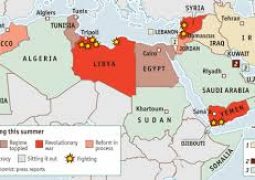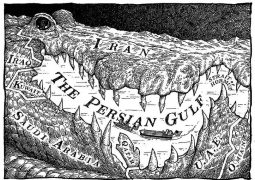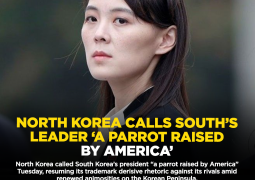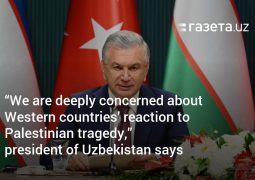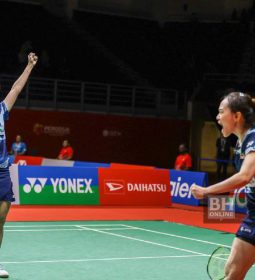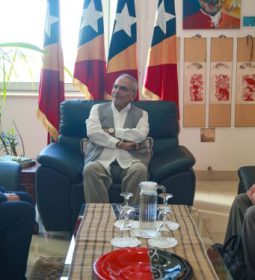Taliban rule in dsplay: The Last Actress of Kabul’s Theater Stage

Khala Nafeesa is one of the millions of once-thriving Afghan women now scrambling to survive within a heavily sanctioned country.
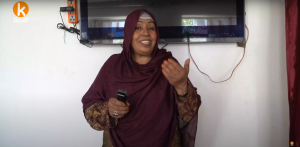
Credit: YouTube Screenshot / Kabul Family
Affectionately known as Khala Nafeesa (Aunt Nafeesa), a title of honor reflecting her age and seniority, she is a veteran of cinema and television who witnessed firsthand the Soviet withdrawal from Afghanistan in the 1980s. She lost much of her family during the civil war in Kabul that followed the collapse of the pro-Soviet government and eventually fled to Pakistan, living as a refugee. She often spoke bitterly about working as a shoe shiner and later in a brick factory to survive as a refugee of war.
The Afghan National Theater, once a grand venue that hosted films, plays, and cultural events, and a symbol of the country’s golden era under its last monarch, was also reduced to ruins during the war.
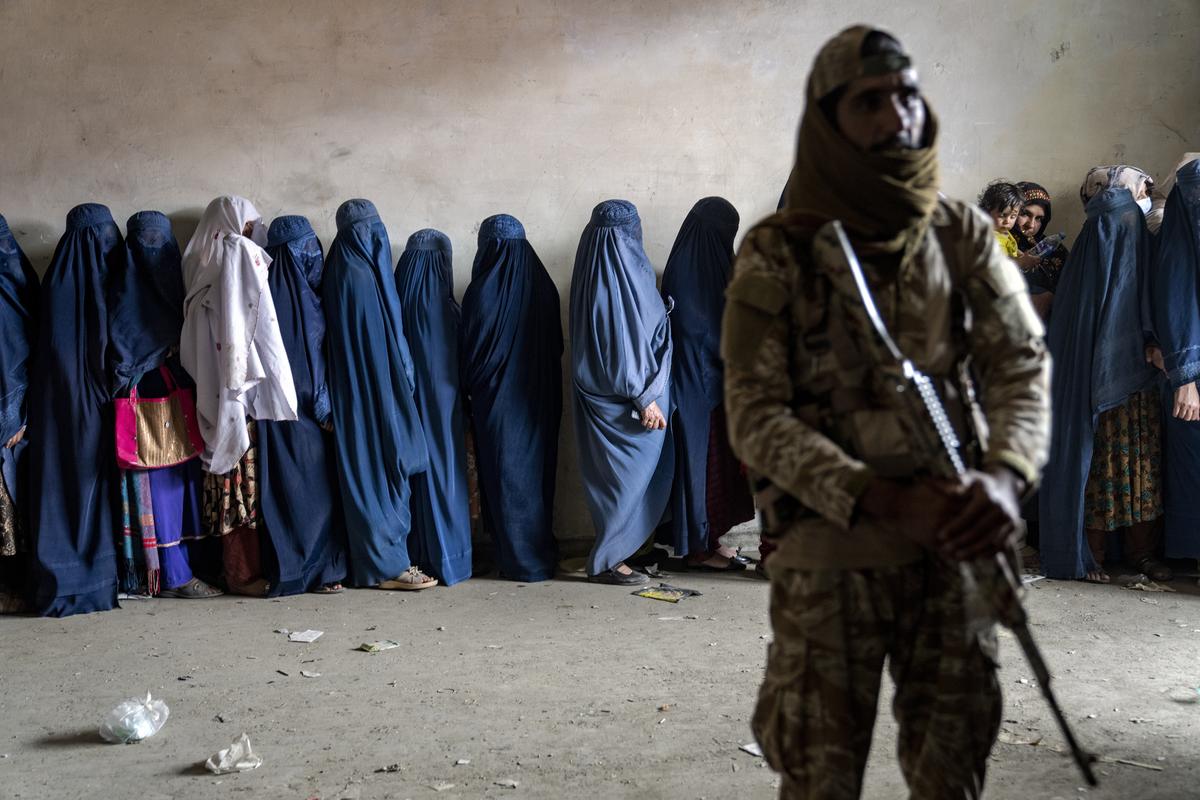
U.S. troops, alongside British forces, launched airstrikes against Taliban and al-Qaida targets in Afghanistan on October 7, 2001, as part of Operation Enduring Freedom; the next month the White House assigned the weekly Saturday radio address, typically delivered by the president, to First Lady Laura Bush. In her address, she described the war on terror as “a fight for the rights and dignity of women.”
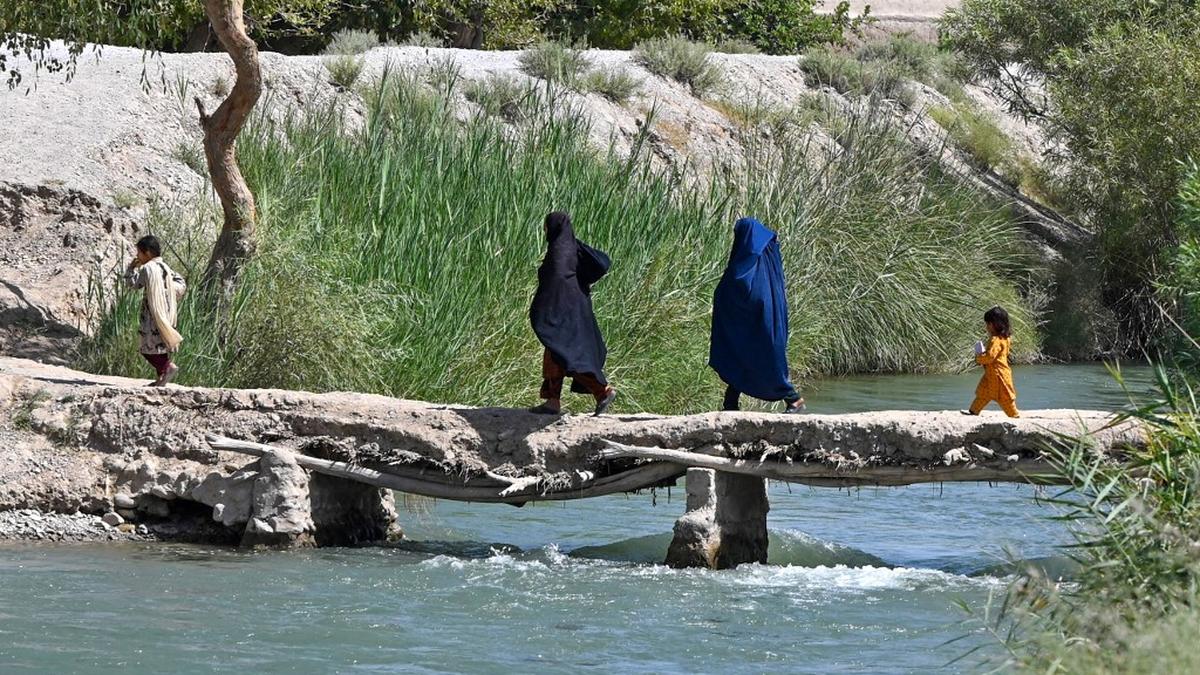
Millions of Afghans trusted that very promise made by the United States. While precise figures vary, a Brown University study estimated that more than 2 million Afghan refugees returned home between 2001 and 2003.

Khala Nafeesa was one of them.
Even though only a skeletal shell of Kabul Nendari remained in Kabul, a haunting reminder of a cultural era lost to conflict, Khala Nafeesa did not remain idle. She resumed her work as an actor and became a household name in the cities, mainly for her work in public service announcements and infomercials. In villages where television was not available, she gained fame performing with traveling theater troupes, tackling some of the most fundamental topics, from elections and voting rights to contraception and birth control.
To convey her message more smoothly and profoundly in a country plagued by some of the world’s highest rates of maternal mortality, illiteracy, and poverty, she often blended comedy, sarcasm, and tears. But four years ago, the small flame of hope she carried for creating a different future was abruptly and brutally extinguished.
The fall of the U.S.-backed government in Kabul on August 15, 2021, was not just a political collapse; for women like Khala Nafeesa, it marked the end of an entire world. In those days, the weight of betrayal felt heavier than defeat, betrayal by those who claimed to represent and serve but fled, and by those who called themselves friends and allies, yet turned away in the hour of need. They stood in silent watch, gripped by uncertainty and the oppressive weight of an unknown fate, as their American supporters made a hurried exit, while most of the Afghan governing elites had largely disappeared even before the Americans.
Months prior to the government’s collapse, numerous high-ranking Afghan politicians and members of the elite had already departed Kabul or at least relocated their immediate families abroad. The public, aware of this reality, cynically derided their ostensible loyalty, quipping that many were “poised with a suitcase, one foot on the airplane’s step and the other still anchored in their office.”
Many of those who remained for a while later revealed, in interviews and public engagements such as Clubhouse talks and X discussions, that the final days of the government were a chaotic process unfolding in stages and, their presence was less about a commitment to safeguarding the public they claimed to protect and more about practical reasons: some were still securing passports and identification documents, others were selling properties and withdrawing funds from banks, while many queued for foreign visas.
While most elites escaped to resume comfortable lives elsewhere, ordinary Kabul residents like Khala Nafeesa confronted a starkly different reality. With each loss of territory to the Taliban offensive, fresh waves of fear swept through the city. Rumors of brutal retribution and the looming threat of anarchy and looting, reminiscent of the civil war that followed the Soviet withdrawal, spread rapidly, fueling a desperate scramble to flee.
The harrowing images of people clinging to aircraft and falling from military planes captured only a fraction of the human tragedy that unfolded during the Kabul airlift, and the bloodshed served as a grim reminder that when political control shifts from one side to another, it is always the civilian population that bears the cost.
For millions of Afghan women, including Khala Nafeesa, defeat on the battlefield meant the immediate loss of some of their most basic rights: the right to education, the right to work, and the right to speak freely. Yet despite these harsh restrictions, her presence in Kabul today stands as a testament to endurance, mirroring the spirit of the ancient capital itself, a city that has weathered the brutality of the Cold War and countless other storms before it. Her strength is not simply symbolic; it is forged in a life shaped by hardship from the start.
In Afghanistan, a land deeply entrenched in patriarchal traditions, widespread illiteracy, and chronic poverty, many communities have long imposed austere and often unforgiving customs upon women. For example, women were commonly expected to eat only after men and were denied access to medical care, including treatment from male doctors, even at the expense of their lives. In households where poverty demanded a choice, it was almost invariably the male child who was granted the privilege of education.
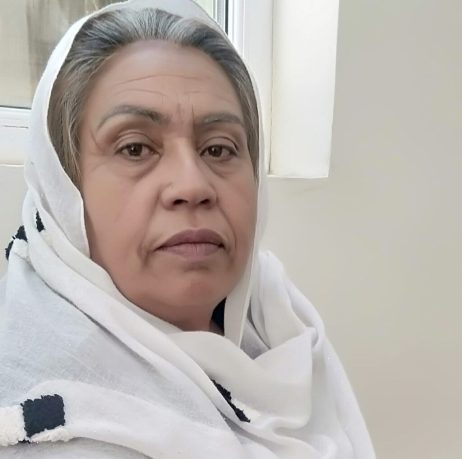
Nafeesa Nafees in a promotional photo on her profile page on AMDb, the Afghan Movie Database.
Khala Nafeesa was never afforded privilege. Born and raised in the narrow alleys of old Kabul, her parents could not support her education, leaving her unable to finish high school even in the comparatively open Kabul of the 1980s, long before the Taliban existed.
When access to education was denied, work became her only avenue for agency and survival. She launched her career in the Kabul theater as an amateur, carving out a space for herself in a society that systematically marginalized women. Today, after nearly four decades on stage, that space has been forcibly erased. This is not merely a denial of employment; it is an assault on her dignity, her right to self-sufficiency, and her fundamental entitlement to live without dependence on the mercy of others.
While the majority of Afghanistan’s cinema and film actors chose to flee when the Taliban established full control, Khala Nafeesa chose to stay and survive in a country heavily sanctioned and largely isolated from the rest of the world. Consequently, she turned to YouTube, where she and a small team performed short theatrical sketches and simple comedy shows.
However, as restrictions tightened over time, her productions dwindled to the bare essentials. In her videos, she places a few vegetables and a portable cooking stove in front of her, cooking and speaking directly to her audience.
She laughs, jokes, and cries. Sometimes she criticizes her audience for not watching or liking her videos enough; other times, she grows frustrated with her colleagues for not cooking well, organizing properly, or being sharp enough. She rarely speaks of politics and keeps the hardships of her daily life in Kabul tightly guarded from public view. Yet watching her journey over the past four years on YouTube, it is impossible to ignore the rapid toll it has taken on her: her hair has grown whiter, her face more lined, and her laughter now carries an unmistakable undercurrent of sadness.
When she appeals for support to her viewers, she embodies the plight of nearly 40 million Afghans rendered dependent by the consequences of policy decisions and geopolitical actions beyond their control or understanding.
After the Taliban’s return to power in 2021, most of the international community and aid organizations withdrew, and Afghanistan faced sanctions due to the Taliban’s policies. Its central bank assets remain frozen. In theory, these sanctions are intended to punish the Taliban leadership, particularly for their extreme oppression of women. In practice, women like Khala Nafeesa bear the heaviest burden of the country’s isolation and sanctions.
Thousands of women like her live scattered across the alleys of Kabul, and millions more reside in rural villages. They have been left at the mercy of both the Taliban’s oppressive policies and global neglect. These are the women truly suffering, the ones the world claims to want to save, yet they remain trapped between a rock and a hard place.
Khala Nafeesa’s last appearance on her YouTube channel was two weeks ago. She is not answering her phone. Her WhatsApp connection seems inactive.
Today, she serves as a symbol for the millions of women confined within a heavily sanctioned country, their only lifeline to the outside world a tenuous thread of internet and a flickering hope for change. And that hope grows ever fainter as the Taliban remain unyielding and the international community, once trusted, turns its gaze elsewhere, weary of its long entanglement in Afghanistan and absorbed by other conflicts.
It has been four years of daily struggle, and if nothing changes, Khala Nafeesa may turn out to be the very last female theater actor in Kabul. And now maybe even her voice has been quieted.
- Previous Thuy Xuan village keeps ancient craft of incense alive In Vietnam
- Next Al_jazeera: Putin’s 25-year legacy with US presidents in Photos




